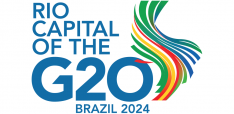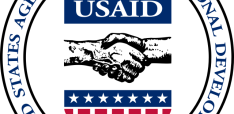The New Washington Dissensus: The 5 principles that are defining the Trump administration’s vision of global development cooperation

The Trump administration’s vision for development cooperation is becoming clearer. We identify 5 principles seemingly guiding actions.
What can 36 questions tell us?
The Trump administration has set out to radically reshape U.S. foreign aid, pushing the “America First” agenda to ensure every dollar spent abroad serves American interests.
The latest indication comes in the form of a 36-question survey sent to international organizations and NGOs that are USAID recipients, effectively forcing them to justify their alignment with U.S. sovereignty, national security, and economic interests. This questionnaire is more than bureaucratic red tape—it is a litmus test for ideological compliance with Trumpism.
At its core, the questions reveal a seismic shift in how the U.S. approaches global development.
This is not about agenda 2030 or the SDGs (“…the United States rejects and denounces the 2030 Agenda for Sustainable Development and the Sustainable Development Goals…”) or poverty reduction or economic development or strengthening multilateral cooperation.
It is about nationalism, transactionalism, and a radical departure from internationally agreed norms of development cooperation that have been stable for some years.
When we look at the questionnaire five principles emerge that are redefining the American foreign aid, and potentially shaping the wider field
1. Aid is a tool for to support U.S. interests including the dismantling of global governance structures
One of the most striking themes is the outright rejection of international organizations and global governance structures. Recipients must confirm that their projects do not rely on international bodies such as the UN (Question 12). This aligns with a broader effort to dismantle multilateral cooperation, treating it as an infringement on U.S. sovereignty. Development cooperation must reinforce American dominance, not strengthen a rules-based international system or “soft global governance”.
2. Zero tolerance for ‘Anti-Americanism’
The questionnaire explicitly demands that aid recipients confirm they do not work with entities linked to “communist, socialist, or totalitarian parties” or any group that espouses “anti-American beliefs” (Question 11). This looks like a new McCarthyism reborn in development policy—an ideological purity test that conflates global engagement with political loyalty. By imposing this restriction, the administration seeks to use aid in its broader geopolitical struggles, particularly against China and left-leaning movements worldwide.
3. Ensuring border security not fluffy development goals
Traditional U.S. development cooperation has, at least nominally, aimed to foster economic growth, democracy, and prosperity abroad. The new framework subordinates all these objectives to America’s domestic border security concerns. Aid projects are judged on their impact on “limiting illegal immigration” and “strengthening U.S. border security” (Questions 14 and 26). This represents the use of development cooperation to reduce migration directly rather than address the causes of migration.
4. The erasure of climate and diversity/equity/inclusion as policy issues
The Trump administration’s hostility to climate action and diversity initiatives is embedded in the questionnaire. Recipients must confirm that their projects do not include any “DEI elements” (Diversity, Equity, and Inclusion) or “climate or environmental justice” components (Questions 15 and 16). This is a deliberate rollback of the Obama and Biden-era emphasis on inclusivity and sustainability, ensuring that American aid does not support progressive social change abroad.
5. Aid must deliver direct economic returns for the U.S.
The questionnaire asks what projects do to demonstrate a financial return for the U.S., including cost-sharing, burden-sharing, and measurable benefits for American industries and workers (Questions 22, 34, and 35). In effect, development cooperation is being transformed into an extension of Trump’s trade and industrial policy—a blunt instrument for economic nationalism rather than a tool for global development.
The Future of U.S. Development Policy
This questionnaire is not just a bureaucratic exercise; it is a populist and at least partly far-right ideology and a declaration of principles. It signals that U.S. foreign aid is no longer about international cooperation, SDGs, poverty alleviation, human rights or even democracy support. Instead, it will be transactional, nationalistic, and subservient to domestic political priorities of MAGA. The Trump administration is making it clear: foreign aid is no longer about development. It is about America First.
The US might introduce a proposal that the Trump administration will present to the rest of the world as international aid. A renaming of USAID to the “U.S. Agency for International Humanitarian Assistance (IHA)” could happen in the near future. However, the nature of these new US approaches may differ significantly from what has traditionally been understood as development cooperation.
It is highly likely that such an approach will be driven by narrow US self-interests and could create opportunities for political leverage and coercion of other countries in the future. Regardless of the terminology Trump and his administration may use, the rest of the world should remain clear on the established understanding of development cooperation and not be misled by these "Trump-only" initiatives.
Stephan Klingebiel heads the research program “Inter- and Transnational Cooperation” at the German Institute of Development and Sustainability (IDOS). He previously led the UNDP Global Policy Centre in Seoul (2019–2021) and the KfW Development Bank’s office in Kigali, Rwanda (2007–2011). He is also a guest professor at the University of Turin (Italy), a senior lecturer at the University of Bonn, and an Honorary Distinguished Fellow at Jindal University (India).
Andy Sumner is Professor of International Development at King’s College, London, and President of European Association of Development Research and Training Institutes (EADI). He is a Fellow of the Academy of Social Sciences and the Royal Society of Arts; a Visiting Professor at the Centre for Economics and Development Studies at Padjadjaran University, Indonesia; and Senior Non-Resident Research Fellow at the United Nations University, WIDER, Helsinki and the Center for Global Development, Washington DC.
Photo by Polina Zimmerman


